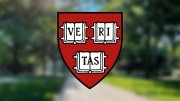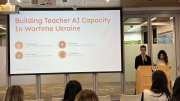Although the campus is far calmer this fall than last, differences of opinion about Harvard’s direction and leadership continue to divide the governing boards and senior administrators from some significant portion of the faculties. Recent actions by the University leadership, and continuing faculty insistence on a greater voice in shaping institutional policies, demonstrate that the tensions have not been resolved.
Those differences arose, first, from concern about the Corporation’s response to criticisms of President Claudine Gay(from within the community, to be sure, but more significantly among politicians, donors, and the source of anonymous allegations of plagiarism in her research) and how those played out from December 2023 through her resignation in early January 2024. An important manifestation of those concerns was the debate about, and early faculty action toward, planning a possible University-wide faculty senate to focus professors’ opportunities to shape Harvard policy.
Subsequent University decisions concerning the punishment of students who participated in the pro-Palestinian encampment in Harvard Yard last spring if anything underscored some faculty members’ dissatisfaction with their own schools’ and the larger institution’s policies and procedures. And then this term, following two rounds of administrative guidance on the ground rules for protests, some faculty members took strong exception to the ways in which the guidance was promulgated (Faculty of Arts and Sciences Dean Hopi Hoekstra said she had not been consulted) and to some specific regulations that seemed to intrude needlessly on free speech. Hoekstra subsequently advised the faculty that FAS (which includes the College) had claimed local exemption, for its facilities, from the rules limiting chalking messages on sidewalks or posting signs. But she also forcefully defended Harvard’s rules banning protests of any sort from library settings. Numerous silent protests in the libraries by pro-Palestinian students, and then by faculty members objecting to the punishments meted out for their silent, seemingly non-disruptive speech acts, made the issues—and the differences of perspective—highly visible.
President Garber’s Initiative…
An initiative announced by President Alan M. Garber last Friday needs to be seen in this evolving context. In an email to all faculty members, he announced the creation of a University-wide Faculty Advisory Council. Citing “issues that have University-wide implications and require a prompt, coordinated response,” and the efficacy of hashing them out in the University’s Academic Council (the president, provost, deans, and other senior leaders), he outlined the faculty group. Its model, he continued, is a provostial advisory committee, “a group of distinguished faculty from throughout the University that began to meet several years ago.” (Garber was provost before becoming president earlier this year.)
“This new advisory group,” he wrote, “consisting of 15 to 20 members from across the faculties, will serve a similar function, offering the Academic Council their views on a wide range of University-wide matters.” It is to be populated by soliciting nominations from the deans, who will consult with colleagues and identify faculty members “who have provided substantial service at the school or University level, or otherwise demonstrated commitment to the broad Harvard community. The Council will meet for a trial period of two years, allowing adequate time to assess its effectiveness and to determine how, if at all, its role should be modified.”
Nodding to the reality, Garber concluded his message by recognizing that discussion about a faculty senate and other avenues for representation of faculty voices is very much underway. “Because regular input from faculty throughout the University on existing and emerging issues is an urgent need,” he concluded neutrally, “I thought it important to assemble the Council even as those discussions continue. Thanks in advance to our colleagues who will lend their knowledge, wisdom, and energy as members of the Council.”
Accompanying this effort at outreach, Garber is also scheduled to meet with FAS members, for an in camera discussion, at the end of their faculty meeting scheduled for December 3.
Separately, the Corporation is conducting its own campaign of outreach and engagement, as senior fellow Penny Pritzker discussed in a conversation on November 25. Those steps have included off-the-record town hall briefings with FAS, and perhaps with other faculties.
…and Continued Work on Creating a Senate
Whether the faculties embrace these initiatives as a constructive step toward fuller, shared governance, or regard them as a charm offensive meant to sideline creation of a senate (which would assuredly complicate administrators’ lives), they continue to work toward exploring the latter.
In November 25 updates, Conant University Professor Danielle Allen—who brought the proposal for planning a faculty senate before the FAS last May—embraced an all-of-the-above strategy. “I’m glad the president and provost recognize the importance of faculty input on University-wide decisions,” she wrote in response to a query about the proposed advisory council, “and I understand and appreciate their sense of urgency.” But, she continued, “Those of us working on the faculty senate question will continue moving the senate planning work forward as expeditiously as possible so that the University will have the strongest possible governance options on the table asap.”
Among other objectives, the senate proposal aims to bring faculty perspectives directly to the Corporation. Garber’s advisory council, as outlined, would reach senior leadership, but not the governing board per se. (Garber, as president, is a member of the Corporation, so the council could theoretically get its views to the governing boards through him.)
As Allen subsequently noted, five schools’ faculties have now voted in favor of the proposed faculty senate planning body: FAS, the Graduate School of Design, Harvard Divinity School, the Harvard Graduate School of Education, and the Chan School of Public Health. The FAS, GSD, and HDS faculties have also elected their representatives to the planning body, with the SPH polling its faculty members now.
Balloting on whether to endorse and participate in the planning body is underway at the Kennedy School, with votes due this week, and next week at the Law School. Updated November 27, 1:20 p.m.: The Kennedy School faculty endorsed the senate-planning measure 39 to 19, and now proceeds to nominating and voting on the school’s delegates to the planning body in December.
Given the elections to date, Allen reported, the informal working group that advanced the proposal initially intends to hand its work off to the schools’ elected delegates on December 9.
Will every school endorse the initiative? Perhaps not: the Business School and Medical School are less clearly engaged so far. Would it be fatal for a senate if not every faculty joins? Again, perhaps not. Among Yale’s numerous schools, the faculty senate encompasses just the arts and sciences and engineering and applied science faculties—but it has managed to function and to be an influential community voice.
•••••
The tumultuous events beginning in the fall of 2023 have already prompted new forms of informal communication and engagement among Harvard’s governing and administrative leadership and the academic members of the community. Those will certainly persist, and perhaps deepen, whether or not accompanied by formal innovations including a faculty advisory council, a faculty senate, or both. Whatever the outcome, the community conversation has been changed.









